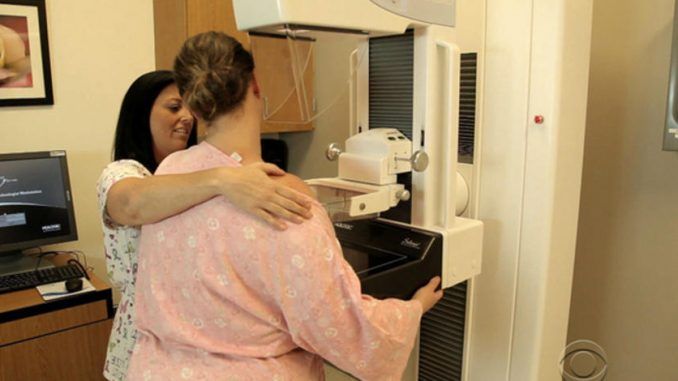
A study on mammography conducted by Peter C Gøtzsche, of the Nordic Cochrane Centre and published in the Journal of the Royal Society of Medicine, shows that the practice of breast irradiation in an attempt to ‘protect’ against breast cancer is not only harmful but should be abandoned.
The study entitled “Mammography screening is harmful and should be abandoned,” shows that decades of screening has done nothing to reduce breast cancer mortality. This is despite the fact that millions of new and supposedly “early stage” or “stage zero” cancers are being diagnosed, which inflate survival rates.
Natural Society reports:

BYPASS THE CENSORS
Sign up to get unfiltered news delivered straight to your inbox.
You can unsubscribe any time. By subscribing you agree to our Terms of Use
Previous research by the same author has concluded that even up to 52% of women undergoing this form of breast screening as recommended will be over-diagnosed; however it is hoped that as many of these women as possible obtain a second opinion.
Another study, more readily available as it was published in 2012, examined the incidence of breast cancer across a 32-year timespan, of both localized cancers and later-stage disease. They found that the introduction of mammography in the US was associated with an increase in early stage breast cancer, from 112 to 234 cases per 100,000 women.
In addition, the rate of late-stage breast cancer decreased by only about 8%, from 102 to 94 cases per 100,000. Assuming the best of mammography, 8 of the 122 new cases were women who had been saved by screening and not other factors such as a reduction in smoking rates.
After adjustment, the authors then estimated an over-diagnosis – that is tumors that would have never cause clinical problems – in 1.3 million women during the years 1976 to 2008. In 2008 alone, over 70,000 women were over-diagnosed; this was 31% of all breast cancers diagnosed.
How many of these women will develop “true” cancers from the overprescribed radiation (and chemo), how many will develop, or already suffer from, other physical and mental health issues? The psychological effects of a cancer diagnosis include clinical mental illness and even suicide. Based on data from over 6 million people, a positive cancer diagnosis raises suicide risk 12 times over in the first week and by 3 times in the first year.
Radiation Could ‘Make Cancer Even Stronger’
The risk of cardiovascular-related death is increased by 5.6 times in the first week, and 3.3 times in the first 4 weeks. Additionally, radiation as a cancer “treatment” may increase the survival and renewing abilities of the cells responsible for breast cancer growth by up to 30 times! This means that an unnatural natural selection process may take place, where weaker cancer cells are killed off and the more menacing populations are enriched.
However, the lower-dose radiation used in mammography has actually been shown to be up to 3-4 times more carcinogenic than high dose radiation.
To make things even worse, women with BRCA1 and/or BRCA2 gene mutations are more vulnerable to radiation-induced cancers, but are encouraged (or often shamed) to have mammograms more often and starting earlier than women born with the normal variants of the genes.
Due to all the evidence stacking up against radiation and mammography, some members of the Swiss medical board are recommending that routine mammography screening be abolished.
Unfortunately, attitudes toward mammography are often greatly distant from reality, with many even believing that this screening method reduces breast cancer risk by at least half! This is not helped by the awareness brigade parroting slogans such as “early detection is the best protection” on television, including on Australian breakfast news programs.
So what is the alternative to radiation? Regular self-examination along with thermography is a safe, painless way to detect breast cancers early without causing them. However, a qualified practitioner must be found, and likely a thick skin developed for the inevitable comments that one is “taking the easy way out” instead of joining the brave, bold, and mutilated.


